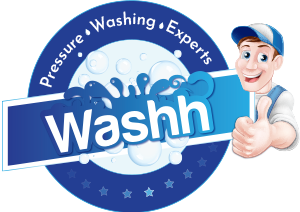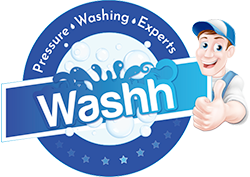If your deck is looking a little worse for wear, you might be asking, “Should I pressure wash my deck?” With a powerful stream of water that effectively cleans stubborn messes on a multitude of surfaces, pressure washing should be something you do from time to time. Many homeowners hire professionals for this, while others choose the DIY route. What is the best option for you? Here are the pros and cons of DIY pressure washing to help you decide.
What Are the Pros and Cons of DIY Pressure Washing?
If you are new to DIY pressure washing, there may be a lot of questions going through your mind right now, such as, “Where can I find a DIY pressure washer,” and “How much will pressure washer rental cost?” This article will touch upon all these aspects to see if you can commit to DIY pressure washing.
One of the benefits of DIY pressure washing projects is how cost-effective they can be. You’re only paying for the DIY pressure washer instead of the labor costs that professionals will charge. Renting a pressure washer is also much cheaper than purchasing a unit. A pressure washer is estimated at $75 to $100 per day — depending on the unit and pound per square inch (PSI).
DIY pressure washers can save you money, but there are hidden costs that must not be overlooked. There will be additional expenses for water usage, the DIY pressure washer soap or cleaner, and fuel for the pressure washer. There is also an opportunity cost as DIY pressure washing can be time-consuming. If surface stains on your house exterior are more severe than anticipated, DIY pressure washing may take longer. You may have to extend your rental for a few more days, which means additional costs.
The Dangers of DIY Pressure Washing
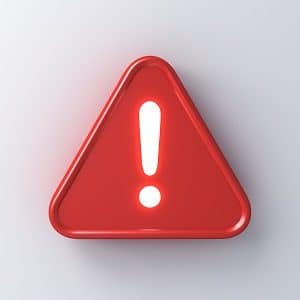 There is always the possibility of damage when you complete a project by yourself. This is especially true when you are controlling something as powerful as a pressure washer.
There is always the possibility of damage when you complete a project by yourself. This is especially true when you are controlling something as powerful as a pressure washer.
These machines can expel water at 3,000 PSI. It’s powerful enough to punch holes into your vinyl sidings and windows, damage the wood surfaces of your deck, or erode the cement in your driveway.
If not handled correctly, DIY pressure washers can also cause serious injury. The savings you get from renting a pressure washer will not compare to the thousands of dollars you might have to spend on house repairs and hospital bills.
Now that you’re aware of the pros and cons of DIY pressure washing, you can start planning and preparing for the task at hand. Whether you’re pressure washing your driveway or patio, there are certain tips that you need to follow.
DIY Pressure Washing Tips
Here are some pressure washing or power washing tips you need to consider:
1. Follow Essential Safety Precautions
The only way to successfully pressure wash by yourself is to ensure that you are prepared. This means following essential safety precautions such as wearing protective gear, turning off electrical outlets outdoors, and avoiding the use of ladders.
2. Clear the Surface and Surroundings
Clear away debris, furniture, and other items before starting the pressure washing process. By clearing the area, you will have more space to pressure wash your exteriors. Since the pressure washer has a lot of force, you also wouldn’t want your personal belongings to be exposed and damaged while pressure washing.
3. Secure Doors and Windows
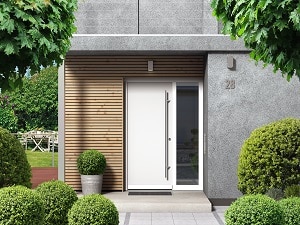 Sticks, stones, and other contaminants can become airborne due to the pressure of the washer. These items can damage your doors and windows if not properly secured. Before pressure washing, cover your doors and windows with plastic sheets or garbage bags. This will minimize damage in case something goes wrong while you are pressure washing.
Sticks, stones, and other contaminants can become airborne due to the pressure of the washer. These items can damage your doors and windows if not properly secured. Before pressure washing, cover your doors and windows with plastic sheets or garbage bags. This will minimize damage in case something goes wrong while you are pressure washing.
4. Assemble the Pressure Washer Properly
Make sure to read the instructions before assembling the pressure washer. This will teach you how to attach the spray wand, the appropriate angle for pressure washing, where to put the hose, and other important details.
5. Execute DIY Pressure Washing
After everything has been prepped, you are now ready to execute DIY pressure washing. Apply a cleaner to dislodge built-up dirt and grime on your surfaces. Then, aim the spray handle and make sure to hit every crack and crevice of your house exterior. This is to ensure that all the contaminants have been removed. After, rinse to remove the soap and let your surface dry.
DIY Pressure Washing vs Professional Pressure Washing
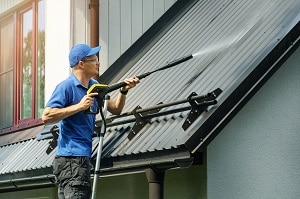 The main issue that homeowners have with professional pressure washing is the cost. Hiring a professional service will usually cost around $350 — depending on the square footage of your property. This is relatively higher than what you would pay to rent a pressure washer. However, consider the quality of service you are getting in return.
The main issue that homeowners have with professional pressure washing is the cost. Hiring a professional service will usually cost around $350 — depending on the square footage of your property. This is relatively higher than what you would pay to rent a pressure washer. However, consider the quality of service you are getting in return.
A professional pressure washing service will be able to efficiently clean your house exterior. They have the experience and expertise to handle any kind of surface, as well as the right equipment that can clean even the hard-to-reach areas.
Professional power washers can complete the job quickly without incurring any damage. While even professionals can make mistakes, a good company will be insured and can compensate you for the damage.
At first, you may think that DIY pressure washing will be much cheaper. However, for those who lack the expertise in handling a pressure washer, this cost might balloon due to additional expenses such as fuel and soap, as well as potential property damage and injury.
These are important things to consider when deciding between DIY pressure washing and professional pressure washing. Ideally, you can choose the former when undertaking small projects such as cleaning your patio or deck. For bigger projects such as full property cleaning, you might want to consider the latter. A professional pressure washing service can effectively clean your house’s exterior without putting you, your family, or your property at risk.
Should You Choose DIY Pressure Washing or a Professional?
When choosing what direction to take, you should always consider the pros and cons of DIY pressure washing and professional pressure washing. DIY pressure washing saves you a lot of money, but it will demand a lot of time. It also opens you up to a lot of risks. Hiring a professional pressure washing service will cost more money, but they have the experience and expertise to get the job done quickly. Ultimately, you need to think about your budget and needs when making this decision. If you need help, don’t hesitate to give us a call.
RELATED ARTICLES:
- Can You Pressure Wash A Roof?
- Why You Should Pressure Wash Before Painting And How to Do it Properly
- Soft Washing vs Power Washing: Which Is Better For What?
